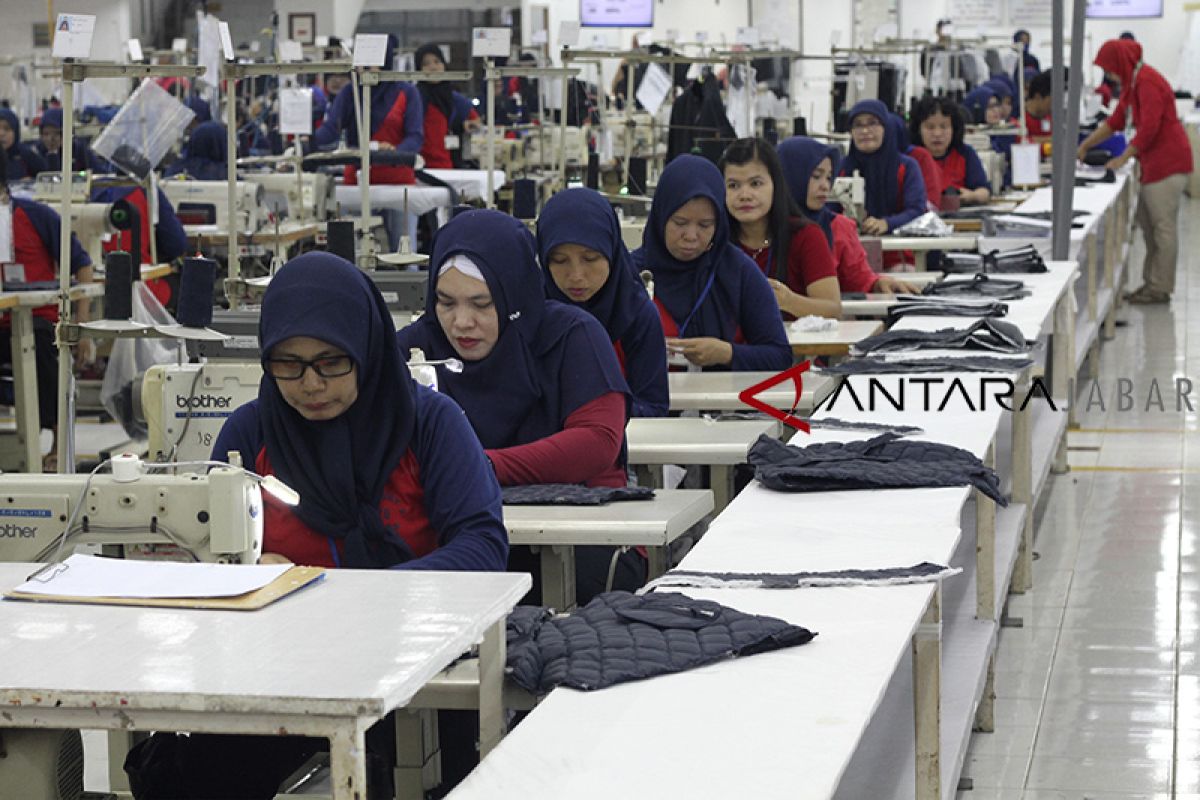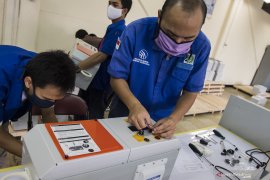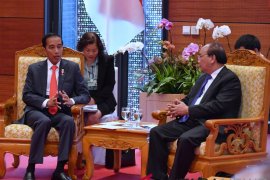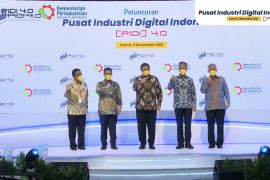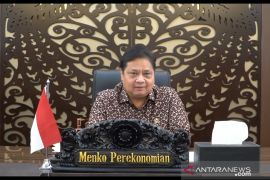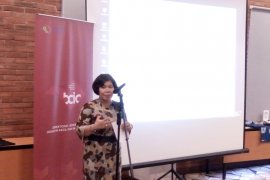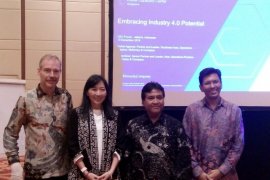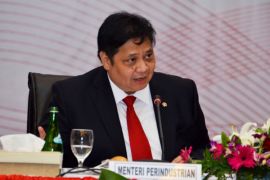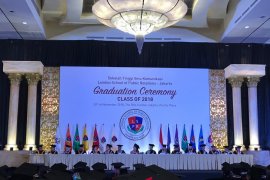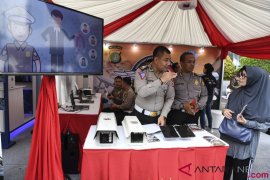"We must transform, from depending on natural resources to manufacturing competitiveness and modern services that have high added values for prosperity of the nation and for social justice for all Indonesian people," Jokowi had stated on Oct 20, 2019.
The four other priorities are human resources development, infrastructure development, regulation simplification, and bureaucracy simplification.
Four days later while chairing the first plenary meeting of his new cabinet, the president reiterated the necessity to ease requirements for industries that can boost Indonesia's exports.
"I have repeatedly conveyed this statement. If there are export-oriented industries or those intending to produce substitute goods for importing, please do not take too long to sign (the documents of approval)," he told cabinet members at the meeting.
Incentives must be awarded to industries oriented towards export increase and those producing goods to substitute imports.
Related news: Jokowi chairs foremost plenary meeting of Indonesia Onward Cabinet
President Jokowi also remarked that the central and regional governments must fix targets for the creation of more job opportunities. To this end, those industries able to provide jobs should be served well.
The head of state called for improving the quality of human resources to meet the requirements of Industry 4.0, supported by five main technologies, notably the Internet of Things, Artificial Intelligence, Human-Machine Interface, robotic and sensor technology, and 3D printing.
Indonesia must develop hardworking, dynamic, and skilled human resources also mastering in technology and sciences, he stated.
After the meeting, new Industry Minister Agus Gumiwang, who succeeded Airlangga Hartarto, spoke of his plans to revitalize the manufacturing industry to boost growth.
"Breakthroughs must be sought for this, and we know that Indonesia's market size is quite good," he remarked.
Related news: New minister to revitalize manufacturing industry for growth
Indonesia has had the Making Indonesia 4.0 Roadmap for implementing Industry 4.0, which is the fourth industrial revolution triggered by technological advancements, such as computers, robots, and the Internet, among other things.
The nation believes that the implementation of Industry 4.0 will usher in viable opportunities to revitalize the manufacturing sector and serve as a driver to realize Indonesia’s vision to rank among the world’s top 10 economies in 2030.
The application of Industry 4.0 is forecast to generate more specific job opportunities, precisely those where high competencies are required. Thus, it is deemed necessary to transform the skills of Indonesia’s industrial human resources to better adapt to the information technology sector.
In the meantime, Indonesia's exports of manufactured goods during the January-September 2019 period had reached US$93.7 billion, constituting 75.51 percent of the country's total exports at $124.1 billion, the then Industry Ministry Airlangga Hartarto had stated on Oct 16, 2019.
During the January-September 2019 period, the country's balance of trade also recorded a surplus from the manufacturing industry, including the food industry, with $11.8 million; garment industry, at $5.6 million; and the paper and paper products industry, with $3 million
"The manufacturing industry that contributed over 75 percent (of the total exports) has broken the notion that our national exports fully comprise (unprocessed) commodities. This means the downstream industry plays a role in increasing added value, and our products are becoming competitive in the global market," Hartarto noted in a statement.
That achievement is owing to the Industry Ministry's strategic steps directed at accelerating the transformation of Industry 4.0 in the country’s manufacturing sector.
Related news: Government formulates strategic measures to accelerate Industry 4.0
The strategic steps entail driving productivity, increasing the competitive edge of export products, and strengthening manufacturing structures, Ngakan Timur Antara, the head of Industrial Research and Development (BPPI) at the Industry Ministry, noted in a statement recently.
"To achieve the target, we need to create a conducive investment climate and galvanize activities for the development of resources, drive potential economic sectors, and keep our macroeconomic condition stable," he explained.
He expressed belief that the matter would materialize if ministries were to synergize and collaborate with all related stakeholders.
"We must realize the commitment together. To accelerate it (the realization of the commitment), we need to direct transformation towards Industry 4.0," he remarked.
He noted that the Industry Ministry had assessed the level of preparedness on the part of several domestic industrial sectors to drive transformation in pursuit of Industry 4.0.
The food and beverage, textile and garment, chemical, automotive, and electronic industries were among the priority sectors to implement the first phase of transformation in accordance with the roadmap for "Making Indonesia 4.0," he stated.
"We call the indicator to assess Indonesia’s level of industry readiness in implementing Industry 4.0 as Industry 4.0 Readiness Index (INDI 4.0). The objective is to see the level of preparedness of industries that we can assess. In addition, we have built the ecosystem of industry 4.0 and developed the concept of green industry," he remarked.
The ministry expects INDI 4.0 (Ecosystem Indonesia 4.0), the ecosystem of Industry 4.0, to be able to serve as a means to build synergy and collaboration among parties to accelerate transformation towards Industry 4.0.
The Industry Ministry has, until now, conducted an assessment of 326 manufacturing companies, and the results indicate that several of them were ready for transformation towards Industry 4.0.
Furthermore, the ministry has provided technical guidance to both managers and engineers of companies on transformation towards Industry 4.0.
Related news: "Making Indonesia 4.0" roadmap to be highlighted in Hannover Messe
Editor: Sri Haryati
Copyright © ANTARA 2019
